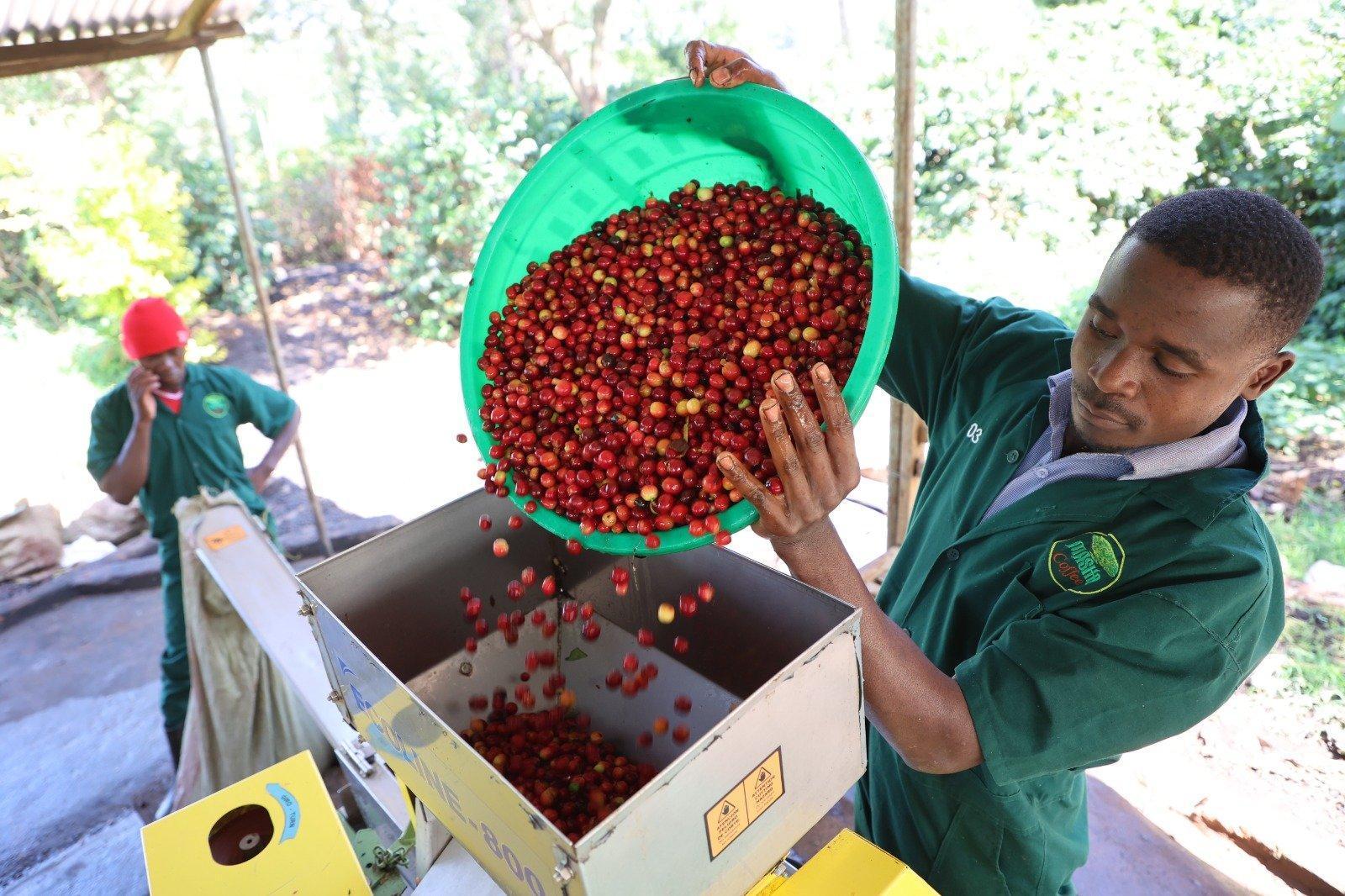By Kennedy Ssebadduka
Africa-Press – Uganda. In his State of the Nation Address – #SoNA2025, H.E President Yoweri Kaguta Museveni revealed that Uganda’s coffee production has continued its upward trajectory, increasing from 7.8 million (60KG bags) in FY 2022/23 to 8.2 million in FY 2023/24.
Correspondingly, coffee export earnings surged from USD 845 million to USD 1.144 billion within the same period — a reflection of the sector’s growing commercial strength.
To sustain this growth, government has allocated shs30 billion in FY 2025/26 to the National Coffee Research Institute (NaCORI) to support the development of high-yielding, pest-resistant and climate-resilient coffee varieties.
This investment underpins a bold national ambition: to raise production to 20 million 60KG bags annually by the year 2030.
But volume alone is not enough.
As echoed by Dr. Patrick B. Birungi, Executive Director of the Uganda Development Corporation (UDC), Uganda’s agriculture sector has declined in its share of national GDP, falling from 34.1% in 2000 to just 24.9% today, despite still employing the majority of the population.
He noted that while agriculture was once a driver of industrialization, today it suffers from low productivity, minimal value addition, and a structural disconnect between employment and economic impact.
“This mismatch, where agriculture remains employment-heavy but value-light, is a structural challenge we must urgently address,” Dr. Birungi remarked.
The coffee sector, which engages over 1.8 million households—a 200% increase since 1985—presents a unique opportunity to reverse this trend and catalyze social and economic transformation.
This calls for a shift: from exporting green beans to unlocking value at home.
Rather than overextending into global brand competition or raw commodity exports, Uganda must now double down on local value addition, agro-industrial investment, and strategic infrastructure development to meet the demands of this production boom and generate inclusive, long-term impact.
Private sector players are already answering this call.
One such initiative is the transformative Luwero Coffee Park, a flagship project led by Nonda Commodities, in partnership with Ingazi Group International, a Saudi-based investment firm, and the Government of Uganda.
Upon completion, the facility will process up to 35,000 metric tons of coffee per year, making it one of the largest coffee value addition centers in the country.
Through this investment, Nonda Coffee and its partners are not only creating market-ready, premium Ugandan coffee products, but also laying the foundation for rural job creation, industrial linkages, and inclusive economic participation across the value chain.
The Way Forward: Transforming Agriculture into Wealth.
Uganda’s coffee sector is rich in potential—not just for foreign exchange, but for national transformation. By localizing value chains, modernizing processing, and deepening government-private sector collaboration, coffee can reclaim its historical role as a driver of industrialization, just as it was in the early post-independence era.
As Dr. Birungi aptly noted:
“We need to rethink how we position agriculture in our development agenda. It should not just feed our people, but also power our industries, earn foreign exchange, and lift millions out of poverty.”
The magic of Ugandan coffee lies not only in its flavor, but in its power to transform communities, industries, and futures — right here at home.
The author is a Ugandan graduate and coffee farmer.
Source: Nilepost News
For More News And Analysis About Uganda Follow Africa-Press






